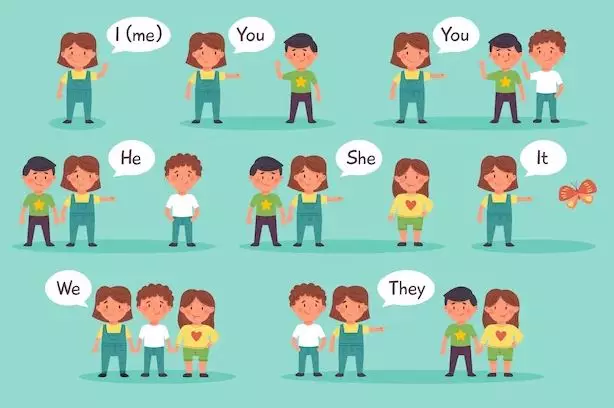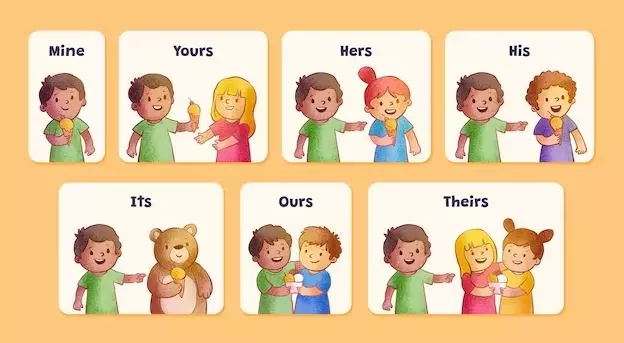Brilio.net - Dalam percakapan bahasa Inggris, mungkin kamu pernah mendengar beberapa kata pendek seperti "am", "is", "are", dan masih banyak lagi. Kata-kata pendek tersebut disebut kata bantu. Nah, apa dimaksud kata bantu dalam bahasa Inggris?
Kamu mungkin bertanya-tanya kan penjelasannya lebih lanjut. Pasalnya, materi kata bantu ini cukup krusial dipelajari bagi orang yang ingin mahir berbicara maupun menulis bahasa Inggris.
Bak rumus, kata bantu dalam bahasa Inggris ini nggak boleh tertukar jenis dan penggunaannya lho. Maka dari itu, kamu wajib paham dan hafal berbagai kata bantu dalam bahasa Inggris, jenisnya, dan cara penggunaannya dalam kalimat dan percakapan.
Dirangkum brilio.net dari berbagai sumber pada Selasa (14/11), ini dia 35 contoh kalimat kata bantu dalam bahasa Inggris, pengertian dan penggunaannya dalam percakapan.
foto: freepik.com
Pengertian kata bantu dalam bahasa Inggris
Kata bantu (auxiliary verb) adalah kata yang digunakan bersama dengan kata kerja utama (main verb) untuk membentuk struktur kalimat yang lebih lengkap dan tepat dalam bahasa Inggris. Kata bantu membantu mengungkapkan waktu, aspek, modus, dan kondisi dari suatu tindakan atau kejadian.
Jenis kata bantu yang digunakan dalam bahasa Inggris dapat dibagi menjadi beberapa kategori, antara lain:
1. Primary Auxiliary Verbs
To Be (am/is/are/was/were):
- She is reading a book.
- They were playing soccer.
To Have (have/has/had):
- We have finished the project.
- She had already left.
2. Modal Auxiliary Verbs
Can:
- He can speak three languages.
Could:
- Could you please pass the salt?
May:
- May I use your phone?
- Might:
- It might rain later.
Shall:
- Shall we go for a walk?
- Should:
- You should apologize.
Will:
- I will call you later.
Would:
- Would you like some tea?
Must:
- You must finish your homework.
3. Semi-Modal Auxiliary Verbs
Need To:
- We need to leave early.
Dare To:
- She dared to confront the manager.
Used To:
- I used to live in London.
4. Phrasal Modal Verbs
Be Going To:
- They are going to start a new project.
Have To:
- I have to attend a meeting.
Ought To:
- You ought to be more careful.
Had Better:
- You had better finish on time.
5. Non-modal Auxiliary Verbs
Do/Does/Did:
- I do my homework every day.
- Does she like chocolate?
- He did his best.
Adapun fungsi utama dari kata bantu adalah sebagai berikut:
1. Membentuk Tenses
2. Membentuk Modalitas
3. Membentuk Kondisi dan Kemungkinan
4. Membentuk Pertanyaan dan Kalimat Negatif
foto: freepik.com
35 Contoh Kalimat Kata Bantu dalam Bahasa Inggris
1. To Be (am/is/are):
- I am going to the store.
- She is studying for the exam.
- We are planning a trip.
2. To Be (was/were)
- I was at the party last night.
- They were playing video games.
3. To Do (do/does/did)
- I do my homework every evening.
- He does his chores on weekends.
- Did you finish the report?
4. To Have (have/has/had)
- We have a meeting at 3 PM.
- She has a new car.
- They had a great time at the concert.
5. To Will (will/would)
- I will call you later.
- She would like to join the team.
6. To Can (can/could):
- I can swim.
- Could you please pass the salt?
7. To Shall (shall/should)
- We shall meet at the park.
- You should try the new restaurant.
8. To May (may/might)
- May I borrow your pen?
- It might rain this afternoon.
9. To Must (must)
- You must finish your homework before going out.
10. To Would Rather (would rather)
- I would rather stay home tonight.
11. To Be Able To (be able to)
- She is able to speak three languages.
12. To Have To (have to)
- We have to leave early tomorrow.
13. To Need To (need to)
- I need to buy groceries.
14. To Used To (used to)
- I used to play the piano when I was younger.
15. To Ought To (ought to)
- You ought to apologize for what you said.
16. To Dare To (dare to)
- I dare to dream big.
17. To Get To (get to)
- I get to visit my family next month.
18. To Would Like To (would like to)
- She would like to go to the beach.
19. To Be Going To (am/is/are going to)
- They are going to start a new project.
20. To Be Supposed To (am/is/are supposed to)
- You are supposed to finish the report by Friday.
21. To Have Got To (have/has got to)
- I have got to leave early today.
22. To Had Better (had better)
- You had better be on time for the meeting.
23. To Be Allowed To (am/is/are allowed to)
- Students are allowed to use the library.
24. To Be Bound To (am/is/are bound to)
- With hard work, you are bound to succeed.
25. To Have To (have to)
- I have to attend a meeting this afternoon.
foto: freepik.com
26. To Be Used To (am/is/are used to)
- We are used to the cold weather here.
27. To Be To (am/is/are to)
- You are to submit the report by Monday.
28. To Be About To (am/is/are about to)
- She is about to leave for the airport.
29. To Have To (has/have to)
- They have to finish the project by the end of the week.
30. To Have Got To (has/have got to)
- He has got to attend the seminar tomorrow.
31. To Have Been (have/has been)
- We have been waiting for an hour.
32. To Have Had (have/has had)
- She has had a busy day.
33. To Should (should)
- You should exercise regularly for good health.
34. To Can (can)
- Can I have a glass of water, please?
35. To Would Be (would be)
- It would be great to see you at the party.
Recommended By Editor
- 90 Contoh kata konkret dalam puisi lengkap dengan pengertian dan fungsinya
- 15 Contoh kalimat iklan yang menarik dan singkat lengkap dengan tips membuatnya
- 25 Contoh kata rujukan lengkap dengan pengertian, jenis, dan fungsinya
- 50 Contoh kalimat polisemi lengkap dengan pengertiannya
- 30 Contoh kalimat konjungsi temporal lengkap dengan ciri-ciri dan penjelasan yang mudah dipahami



















































